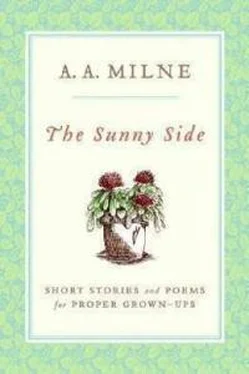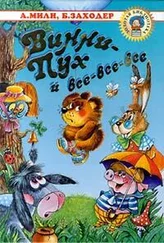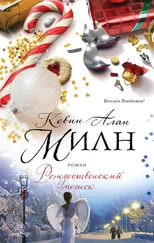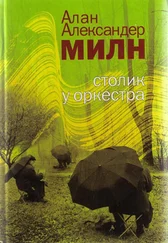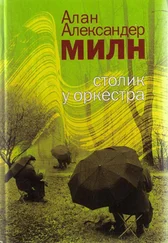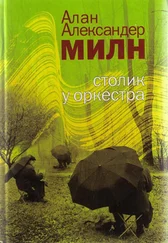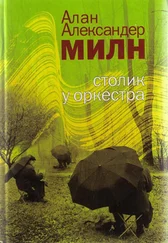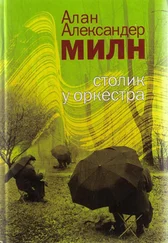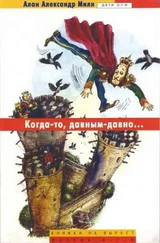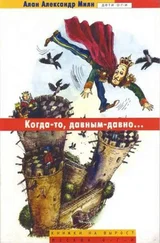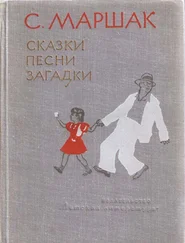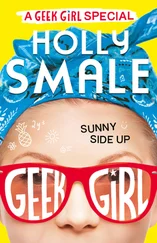"Such a sweet idea," says Lady Poldoodle. "I sit here and ask myself—wonderingly! How true! How very true!"
"I couldn't quite follow it, dear," says her neighbour frankly. "Did he marry her after all?"
Lord Poldoodle, looking slightly more cheerful, gets once more on to his legs.
"You will all be very glad to hear—ah—you will all be sorry to hear that we have only one more poet on our list this afternoon. Mr. Cecil Willow, the well–known—er—poet."
Mr. Willow, a well–dressed young man, fair and rather stout, and a credit to any drawing–room, announces the subject of his poem—Liberty.
"Liberty, what crimes have been committed in thy name!" murmurs Lord Poldoodle to himself.
LIBERTY
There were two thrushes in a tree, The one was tamed, the other free. Because his wings were clipped so small The tame one did not fly at all, But sang to Heaven all the day— The other (shortly after) flew away.
There were two women in a town, The one was blonde, the other brown. The brown one pleased a Viscount's son (Not Richard, but the other one) He gave her a delightful flat— The blonde one loved a man called Alfred Spratt.
There were two Kings on thrones of gold, The one was young, the other old. The young one's laws were wisely made Till someone took a hand–grenade And threw it, shouting, "Down with Kings!"— The old one laid foundation stones and things.
"How delightful," says everybody. "How very delightful. Thank you, Lady Poldoodle, for such a delightful afternoon."
THE PERILS OF REVIEWING
A most unfortunate thing has happened to a friend of mine called ― to a friend of ― to a ―. Well, I suppose the truth will have to come out. It happened to me. Only don't tell anybody.
I reviewed a book the other day. It is not often I do this, because before one can review a book one has to, or is supposed to, read it, which wastes a good deal of time. Even that isn't an end of the trouble. The article which follows is not really one's own, for the wretched fellow who wrote the book is always trying to push his way in with his views on matrimony, or the Sussex downs, or whatever his ridiculous subject is. He expects one to say, "Mr. Blank's treatment of Hilda's relations with her husband is masterly," whereas what one wants to say is, "Putting Mr. Blank's book on one side, we may consider the larger question, whether—" and so consider it (alone) to the end of the column.
Well, I reviewed Mr. Blank's book, "Rotundity." As I expected, the first draft had to be re–headed "A Corner of old London," and used elsewhere; Mr. Blank didn't get into it at all. I kept promising myself a sentence: "Take 'Rotundity,' for instance, the new novel by William Blank, which, etc." but before I was ready for it the article was finished. In my second draft, realizing the dangers of delay, I began at once, "This remarkable novel," and continued so for a couple of sentences. But on reading it through afterwards I saw at once that the first two sentences were out of place in an article that obviously ought to be called "The Last Swallow"; so I cut them out, sent "The Last Swallow: A Reverie" to another Editor, and began again. The third time I was successful.
Of course in my review I said all the usual things. I said that Mr. Blank's attitude to life was "subjective rather than objective" … and a little lower down that it was "objective rather than subjective." I pointed out that in his treatment of the major theme he was a neo–romanticist, but I suggested that, on the other hand, he had nothing to learn from the Russians—or the Russians had nothing to learn from him; I forget which. And finally I said (and this is the cause of the whole trouble) that Antoine Vaurelle's world–famous classic—and I looked it up in the encyclopedia—world–renowned classic, "Je Comprends Tout," had been not without its influence on Mr. Blank. It was a good review, and the editor was pleased about it.
A few days later Mr. Blank wrote to say that, curiously enough, he had never read "Je Comprends Tout." It didn't seem to me very curious, because I had never read it either, but I thought it rather odd of him to confess as much to a stranger. The only book of Vaurelle's which I had read was "Consolatrice," in an English translation. However, one doesn't say these things in a review.
Now I have a French friend, Henri, one of those annoying Frenchmen who talk English much better than I do, and Henri, for some extraordinary reason, had seen my review. He has to live in London now, but his heart is in Paris; and I imagine that every word of his beloved language which appears, however casually, in an English paper mysteriously catches his eye and brings the scent and sounds of the boulevards to him across the coffee–cups. So, the next time I met him, he shook me warmly by the hand, and told me how glad he was that I was an admirer of Antoine Vaurelle's novels.
"Who isn't?" I said with a shrug, and, to get the conversation on to safer ground, I added hastily that in some ways I almost liked "Consolatrice" best.
He shook my hand again. So did he. A great book.
"But of course," he said, "one must read it in the original French. It is the book of all others which loses by translation."
"Of course," I agreed. Really, I don't see what else I could have done.
"Do you remember that wonderful phrase—" and he rattled it off. "Magnificent, is it not?"
"Magnificent," I said, remembering an appointment instead. "Well, I must be getting on. Good–bye." And, as I walked off, I patted my forehead with my handkerchief and wondered why the day had grown so warm suddenly.
However the next day was even warmer. Henri came to see me with a book under his arm. We all have one special book of our own which we recommend to our acquaintances, regarding the love of it as perhaps the best passport to our friendship. This was Henri's. He was about to test me. I had read and admired his favourite Vaurelle—in the original French. Would I love his darling Laforgue? My reputation as a man, as a writer, as a critic, depended on it. He handed me the book—in French.
"It is all there," he said reverently, as he gave it to me. "All your English masters, they all come from him. Perhaps, most of all, your ― But you shall tell me when you have read it. You shall tell me whom most you seem to see there. Your Meredith? Your Shaw? Your ― But you shall tell me."
"I will tell you," I said faintly.
And I've got to tell him.
Don't think that I shall have any difficulty in reading the book. Glancing through it just now I came across this:—
"' Kate, avez–vous soupé avant le spectacle ?'
' Non, je n'avais guère le coeur à manger .'"
Well, that's easy enough. But I doubt if it is one of the most characteristic passages. It doesn't give you a clue to Laforgue's manner, any more than "'Must I sit here, mother?' 'Yes, without a doubt you must,'" tells you all that you want to know about Meredith. There's more in it than that.
And I've got to tell him.
But fancy holding forth on an author's style after reading him laboriously with a dictionary!
However, I must do my best; and in my more hopeful moments I see the conversation going like this:—
"Well?"
"Oh, wonderful." ( With emotion ) "Really wonderful."
"You see them all there?"
"Yes, yes. It's really—wonderful. Meredith—I mean—well, it's simply—( after a pause ) wonderful."
"You see Meredith there most?"
"Y–yes. Sometimes. And then ( with truth ) sometimes I—I don't. It's difficult to say. Sometimes I—er—Shaw—er—well, it's—" ( with a gesture somewhat Gallic ) "How can I put it?"
"Not Thackeray at all?" he says, watching me eagerly.
I decide to risk it.
Читать дальше
